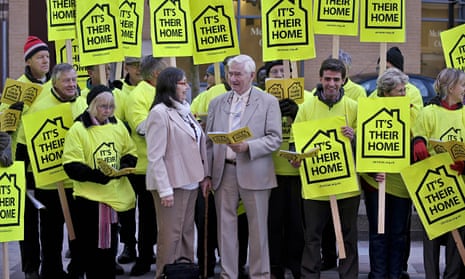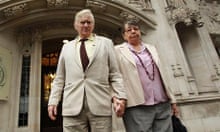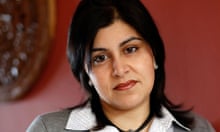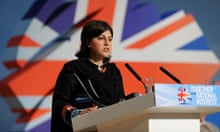The Equality and Human Rights Commission (EHRC) has launched a consultation on whether it is handling religious equality appropriately. This marks a significant unease with the way in which equality law has dealt with Christians, in particular since 2010. The central question is whether there is anything more to Christian discontent than whingeing about the progress of gay rights.
The Evangelical Alliance sees this move as a triumph. Don Horrocks, a Baptist minister who is its head of public affairs, says the commission has “failed religion and belief totally”.
“Evangelical Christians have absolutely no confidence in the commission whatsoever. People of faith are generally quiet. Now the commission wants to know how many xians and others are being bullied.”
In a reference to the case of Peter and Hazelmary Bull, who attempted to deny a civilly partnered gay couple a double bed because they do not believe in sex outside marriage, Horrocks said: “Look at the B&B couple who just wanted the freedom to run their house on Christian principles. What about the Christians who are told their faith should be left at the door when they enter the workplace? What about all the organisations who wish to maintain a Christian ethos and are told they must actively promote things they don’t believe in?”
So the Evangelical Alliance, which claims to represent 2 million Christians, is asking its followers to write to the EHRC about their concerns. Given the strength of evangelical feeling against homosexuality, this could result in a lot of letters. The difficulty is that most of the alliance’s cases appear to the outside world to be Christians claiming that unless they can discriminate against gay people, they are themselves the victims of discrimination. This is not a view with wide appeal.
Mark Hammond, chief executive of the EHRC, points out that of the four cases on religious liberty that have gone to Strasbourg in the past three years, his organisation has sided with the Christians in two and against them in two. The commission took the view that Christians were not allowed to discriminate against gay people, however sincerely they want to, but it backed their right to wear crosses at work even when the secular courts disagreed.
For the EHRC, this is no more than a slight adjustment of course: a check that it is interpreting the law as it is supposed to be. But I think it is rather more than that and represents the start of a swing of the pendulum away from the kind of hard secularism that regards all forms of religion in public life with suspicion. Examples of that would be attempts to ban prayer before council meetings.
This is not a move towards the functional re-establishment of Christianity, which has been effectively disestablished over the past 30 years. If anything, it is prompted by the rising importance of Islam. It is obviously dangerous to social cohesion if the idea gets around that Muslims can get away with things that Christians can’t, and there is some basis for that kind of reasoning. Christians who preach homophobia are sometimes harassed by the police in a way that Muslims who do the same aren’t; if Muslims come to the attention of the police for their beliefs, it is in connection with terrorism rather than crimes against liberal sexual orthodoxy.
What the law suggests is a position inimical to both sides in last century’s debates about secularism – those who imagined it was about preserving the privileged position of the Church of England and those who supposed that it was all about driving the church out of the state. A state largely neutral between religious faiths, as the Equality Act presupposes, will please neither of those sides. Christians will get their rights as religious believers, rather than as possessors of the truth. But the rights of the religious are to be protected where they do not infringe on others.
This places a kind of enlightened secularism in the position the established church once enjoyed, of being the arbiter of what kinds of belief are needed to enjoy full participation in English life. It’s difficult to see how else we can manage a plural and largely post-Christian society. The assumption that religion would wither and die is clearly false. It may be that even the C of E will survive. Last year, churchgoers gave £969m to keep it going: this is more than 10 times the declared income of all the political parties put together. Religion is a force that no government can ignore.









